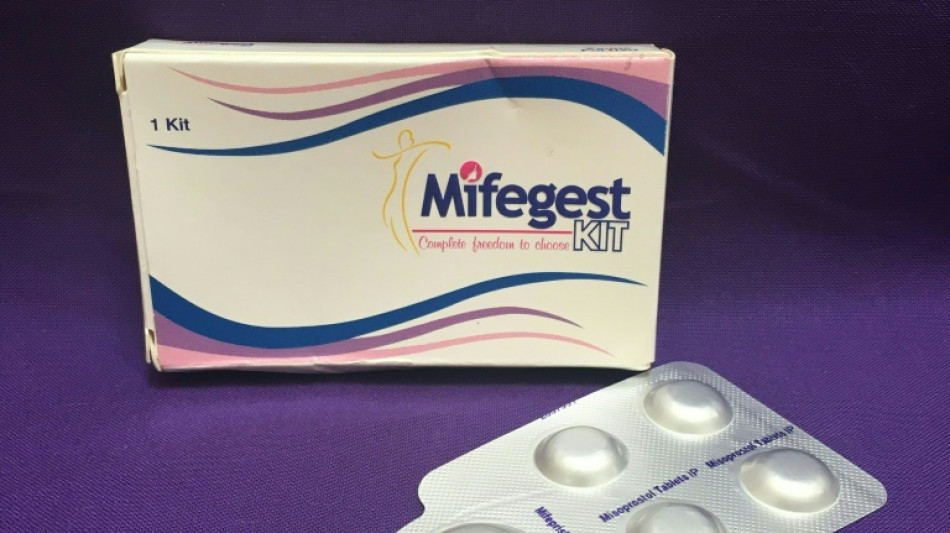
-
 Trade war worries loom over Las Vegas tech show
Trade war worries loom over Las Vegas tech show
-
America mourns former president Jimmy Carter at state funeral

-
 Djokovic handed tough Australian Open draw, Sinner faces Jarry test
Djokovic handed tough Australian Open draw, Sinner faces Jarry test
-
Bok prop Nche wary of Dupont threat in Champions Cup

-
 Conceicao brings good vibes back to AC Milan after Super Cup triumph
Conceicao brings good vibes back to AC Milan after Super Cup triumph
-
'We have lost everything': Despair in the Los Angeles fires

-
 Australia frets over Meta halt to US fact-checking
Australia frets over Meta halt to US fact-checking
-
Japan startup hopeful ahead of second moon launch

-
 Ukraine allies to hold last defence meet before Trump takes office
Ukraine allies to hold last defence meet before Trump takes office
-
NBA-best Cavs win 11th in a row to end 15-game Thunder streak

-
 What you need to know about HMPV
What you need to know about HMPV
-
Venezuela braces for crunch anti-Maduro protests

-
 Bangladesh garment industry rebounds, but workers say little change
Bangladesh garment industry rebounds, but workers say little change
-
Asian markets drop as trades fret over US inflation, rates outlook

-
 Mozambique opposition leader due home amid tension over disputed vote
Mozambique opposition leader due home amid tension over disputed vote
-
Doping and a match made in heaven: Australian Open storylines

-
 Australia recall McSweeney for Sri Lanka Tests, Connolly set for debut
Australia recall McSweeney for Sri Lanka Tests, Connolly set for debut
-
Myanmar military adopts anti-junta fighters' drone tactics

-
 Lebanon set to finally elect president after two-year vacancy
Lebanon set to finally elect president after two-year vacancy
-
New twist in US-Cuba trademark fight over Havana Club rum

-
 CES tech looks to help world's aging population
CES tech looks to help world's aging population
-
Venezuela repression increases ahead of crunch anti-Maduro protests

-
 Rubber tappers forge sustainable future in Amazon
Rubber tappers forge sustainable future in Amazon
-
'No more fires,' demand fed-up Amazon residents

-
 Assault on Chad presidential complex leaves 19 dead
Assault on Chad presidential complex leaves 19 dead
-
Crowds throng as Jesus statue parades through Philippine capital

-
 Slot fumes after Spurs teenager Bergvall avoids red card to sink Liverpool
Slot fumes after Spurs teenager Bergvall avoids red card to sink Liverpool
-
Fighting at Chad presidency leaves 19 dead, several injured

-
 US astronauts upbeat seven months into eight-day mission
US astronauts upbeat seven months into eight-day mission
-
Bergvall strikes as Spurs snatch League Cup semi-final lead over Liverpool

-
 Extreme weather, suburban sprawl fuel LA's wildfires
Extreme weather, suburban sprawl fuel LA's wildfires
-
Campaigners fear spike in hate speech as Meta lifts restrictions

-
 Yakuza leader pleads guilty in US court to conspiring to sell nuclear material
Yakuza leader pleads guilty in US court to conspiring to sell nuclear material
-
Barcelona defeat Bilbao without Olmo to reach Spanish Super Cup final

-
 Displaced LA residents in shock at scale of fire destruction
Displaced LA residents in shock at scale of fire destruction
-
Gunfire erupts inside presidency in Chad capital

-
 Miami and Tampa to host outdoor NHL contests in 2026
Miami and Tampa to host outdoor NHL contests in 2026
-
Popov claims first World Cup win in Madonna di Campiglio slalom

-
 Tottenham star Bentancur 'conscious' after head injury in Liverpool clash
Tottenham star Bentancur 'conscious' after head injury in Liverpool clash
-
NHL Kings postpone game while NFL monitors LA area wildfires

-
 Barcelona defeat Athletic without Olmo to reach Spanish Super Cup final
Barcelona defeat Athletic without Olmo to reach Spanish Super Cup final
-
Bulgaria's Popov claims first World Cup win in Madonna di Campiglio slalom

-
 Niemann and Nicolai Hojgaard accept special Masters invitations
Niemann and Nicolai Hojgaard accept special Masters invitations
-
Political chess or true beliefs? Zuckerberg's surprise Trump pivot

-
 Hosszu, swimming's 'Iron Lady', retires at 35
Hosszu, swimming's 'Iron Lady', retires at 35
-
US withholds $3.6 mln payment to WADA after no audit

-
 Venezuela opposition decry crackdown before Maduro swearing-in
Venezuela opposition decry crackdown before Maduro swearing-in
-
US Fed officials concerned over 'stalled' disinflation, tariffs: minutes

-
 Whole streets burn as fires rage around Los Angeles
Whole streets burn as fires rage around Los Angeles
-
Celebrities flee Los Angeles fires as Hollywood events scrapped


The abortion pill at the center of a US court battle
The US Supreme Court has weighed in on the legal battle over an abortion pill that accounts for more than half of the abortions in the United States, freezing restrictions imposed on the drug by an appeals court.
Here is background on the drug, mifepristone, and its use:
- How widespread is abortion pill use? -
According to the Guttmacher Institute, the pill accounted for more than half -- 53 percent -- of the 930,160 abortions documented by the reproductive health research and policy organization in the United States in 2020.
That was up from 17 percent in 2008 and 39 percent in 2017.
While the number of so-called medication abortions has gone up dramatically in the United States in recent years, it is still not as prevalent as in several European nations.
In France, for example, medication abortions represented 70 percent of the total number of abortions in 2020.
- How does it work? -
The abortion pill is different from the "morning after" pill, which is taken by a woman after sexual intercourse to prevent becoming pregnant.
The abortion pill is taken to induce an abortion once a woman confirms that she is pregnant.
The process in fact involves more than one pill. The first, mifepristone, also known as RU 486, stops a pregnancy from proceeding normally by blocking production of the hormone progesterone.
Another drug, misoprostol, is taken up to 48 hours later and causes cramps, bleeding and the emptying of the uterus.
Abortion pills can be used at home and a medical setting is not required.
- When was the abortion pill approved? -
The US Food and Drug Administration (FDA) gave the green light to mifepristone and misoprostol in 2000 for use up to seven weeks of pregnancy.
It was later approved for use up to 10 weeks of pregnancy, after which a woman would need to undergo an abortion through other means, such as vacuum aspiration.
A group opposed to abortions has challenged the FDA's approvals of mifepristone in federal court in Texas.
The average cost of a medication abortion at Planned Parenthood is $580 but it can cost up to $800.
- Is it safe and effective? -
Use of the abortion pill during the specified time period is considered to be safe and effective by medical experts.
Pregnancies are successfully terminated in more than 95 percent of cases where the pill is used, according to studies.
Serious complications -- excessive bleeding, fever, infection or allergic reaction -- which require a medical consult, are rare.
The abortion pill does not work for ectopic pregnancies, which account for around two percent of all pregnancies and where a fertilized egg grows outside the uterus.
- Where is the pill available? -
At least 13 US states have banned most abortions, including medication abortions, since the Supreme Court's ruling in June 2022 overturning the constitutional right to an abortion.
Despite the bans, a number of organizations have mobilized to provide abortion pills to women in states where abortion is restricted.
The extent of their efforts is difficult to evaluate.
In the states where abortion is legal, the FDA recently loosened restrictions surrounding mifepristone, allowing it to be sent through the mail with a prescription or to be sold directly in pharmacies like any other drug.
A.Mahlangu--AMWN


